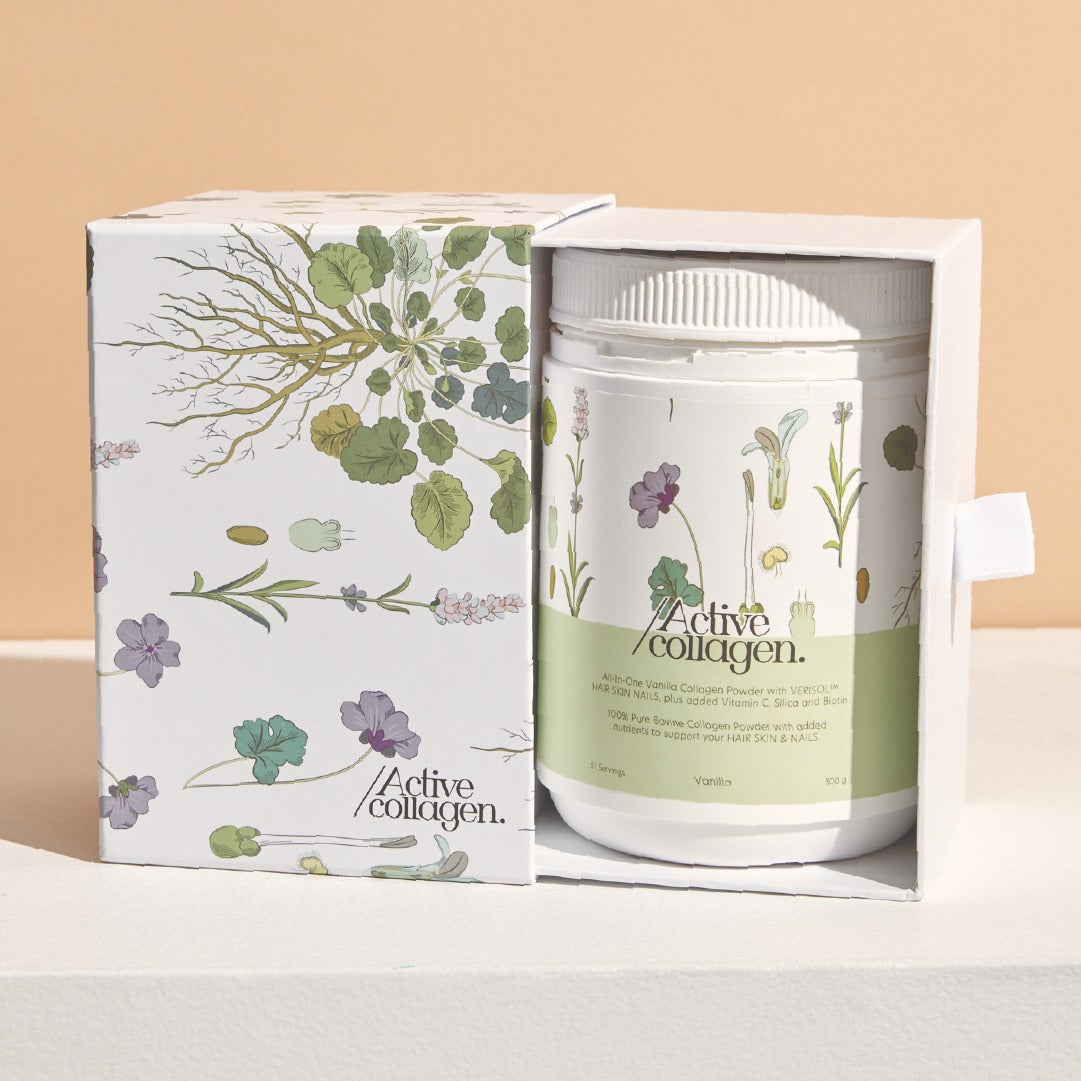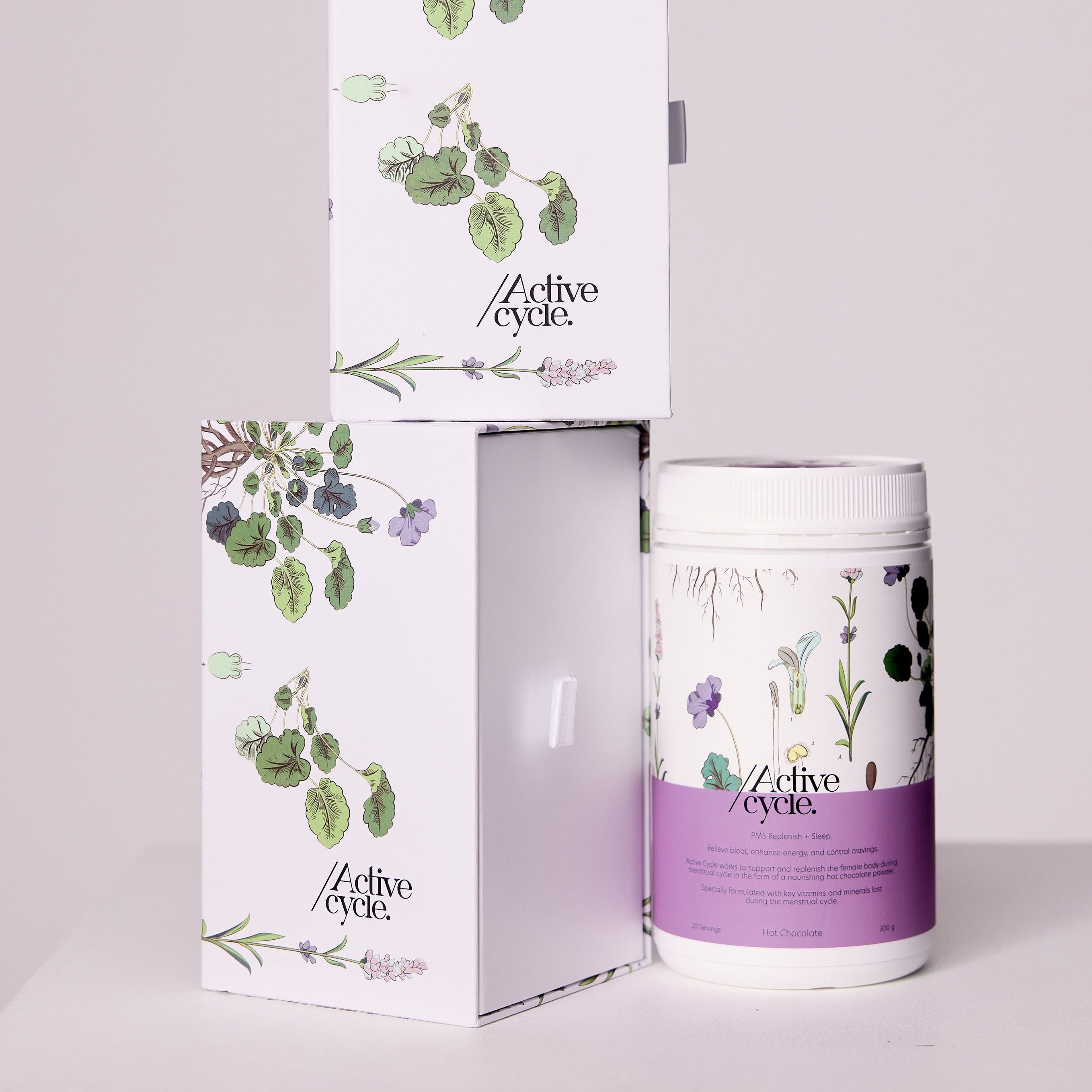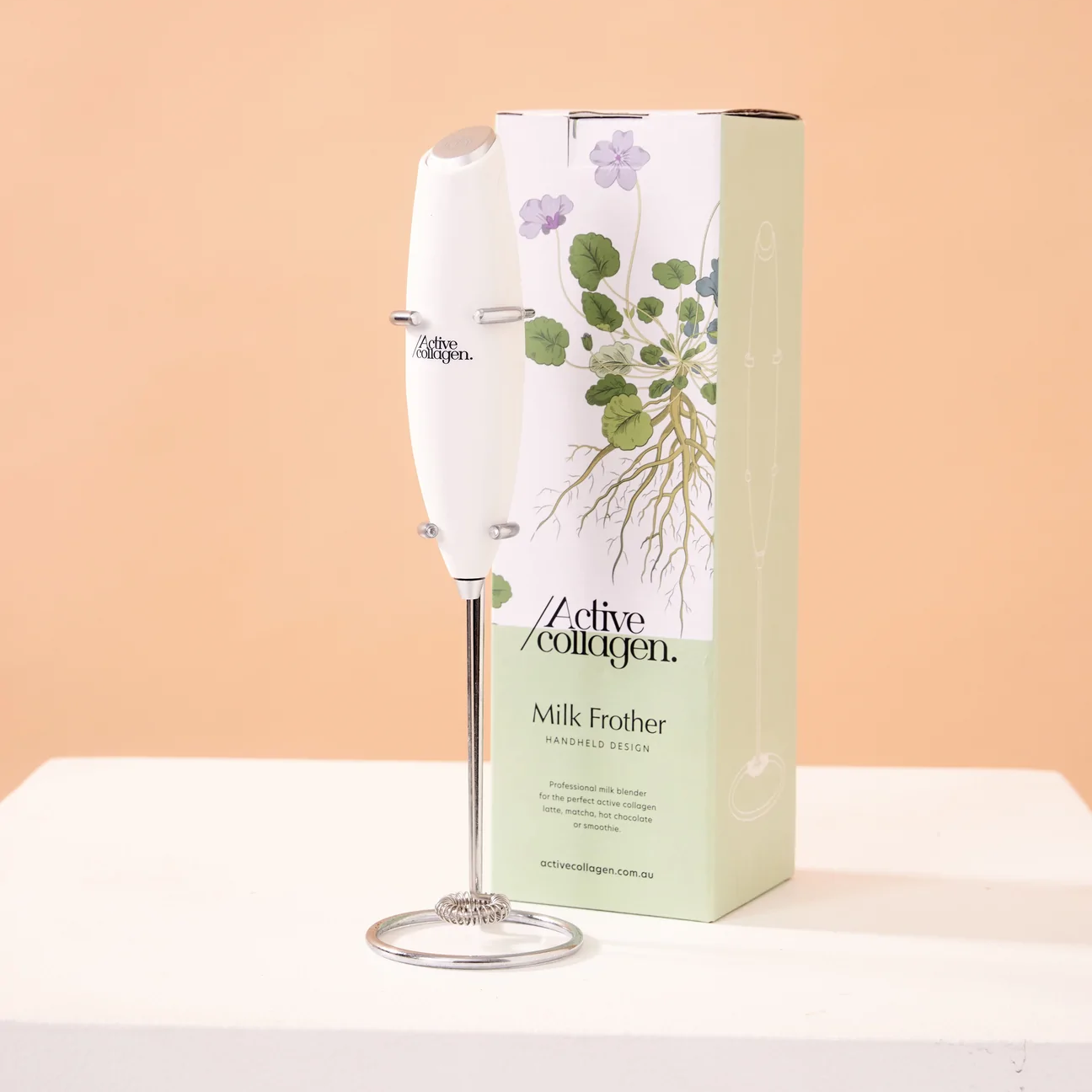By Maya Ling BHSc Clinical Nutritionist
Puberty isn’t the only major hormonal event a body goes through in its lifetime. And when we consider this over a woman’s lifetime, there are several large hormonal events that can make a significant impact. Arguably more so than puberty itself – pregnancy, postpartum, perimenopause, menopause.
Turning your attention to perimenopause and menopause, these periods of life are often not given enough consideration, leaving women to tough it out in silence. Both of which entail a large shift in women’s hormones which happens over several years before coming to an end point of amenorrhea, the loss of a monthly menstrual cycle causing a woman to be infertile. And of course, these major hormonal events don’t come without their cardinal signs and symptoms. Here’s where collagen comes in.
As there is a natural decline in collagen levels after around the age of 25, and then accelerating in decline after 40, collagen supplementation is a game changer for women over 40. From hormonal effects to skin, joint and bone health, supporting collagen levels during this time can help minimise the effects of drastic hormonal changes. But how?
What are the Specific Hormonal Changes?
Menopause is the cessation of the menstrual cycle due to a decline in the production of the ovarian hormones’ oestrogen and progesterone from a depletion in follicles. However, the hormonal decline begins years before the actual cessation happens known as perimenopause which typically begins between ages 45-55. Interestingly, the term menopause only refers to the day in which a woman hasn’t experienced menses for over 365 days, after which a woman is then dubbed postmenopausal.
This stage of life can differ in severity from woman to woman, whereby some require medical aid such as hormonal therapy to get on with their everyday life. These personal differentiations are in terms of the woman’s experiencing signs and symptoms such as the familiar hot flashes, night sweats and mood swings. Though also includes those specific to the impact on collagen levels – low oestrogen levels and their direct influence in skin and bone aging.
Skin Wellbeing
If you’ve ever been targeted with ads about collagen supplementation, you’ll be no stranger to its plethora of benefits for skin health. However, looking after your skin is also essential during periods of hormonal decline.
The skin is a major endocrine organ which is impacted by fluctuating hormone levels, such as during puberty when acne flares are particularly common. Not so common in conversation though are the menopausal skin symptoms due to dramatic drops in oestrogen levels. These can have a profound impact on quality of life and psychological health as these symptoms, such as dehydration, wrinkles and reduced skin elasticity, are visible and often associated with a person’s health and attractiveness.
Oestrogen is a kind of commander for collagen production and levels within the layers of the skin. Normally, it helps maintain the skins moisture and thickness through regulation of collagen levels but also through acids like hyaluronic acid. Oestrogen is also important for boosting wound healing by modulating cytokine levels – little protein messengers that help coordinate inflammation within the skin. So, it’s no wonder that during this stage of oestrogen’s decline women are experiencing skin changes due to its direct effect on collagen production.
Bone Health
Musculoskeletal discomfort in the pre- and postmenopausal woman is a frequent manifestation associated with hormonal status and its effect on bone mineralisation. Again, oestrogen is a major player here due to the protective effect it has on bones.
One of the most frequently diagnosed manifestations in the menopausal woman is osteoporosis which affects just over 30%. Rapid declines in oestrogen speed up the process of bone loss, alongside the ongoing degradation in collagen levels as we age. This natural aging process is responsible for decreasing bone formation. Between the two, bone density has been shown to degrade by as much as 10% measured in postmenopausal women.
Another aspect, which is often overlooked due to a large focus being on calcium and vitamin D levels for bone health, is the importance of hitting daily protein intakes. This is due to the role protein plays in being a building block for bone tissue, specifically the collagen proteins that are responsible for building structural bone matrix. Studies have found that menopausal women with higher protein intakes (1.2g per kg of body weight) show better bone density levels and were improved even further when implemented alongside resistance training. Think of resistance training as the stimulus for bone remodelling, when a muscle contracts against resistance this stimulates cells to produce bone tissue.
From supporting your body both externally and internally, collagen really is a game changer for women over 40. Adding a hydrolysed collagen supplement such as Active Collagen whilst prioritising 30 grams of protein at main meals and incorporating resistance style training at least 2-3 times per week will significantly support your body through the menopausal stages and beyond. Just goes to show that protein is so much more than just muscle!
Motlani, V., Motlani, G., Pamnani, S., Sahu, A., & Acharya, N. (2023). Endocrine Changes in Postmenopausal Women: A Comprehensive View. Cureus, 15(12), e51287. https://doi.org/10.7759/cureus.51287
Zouboulis, C. C., Blume-Peytavi, U., Kosmadaki, M., Roó, E., Vexiau-Robert, D., Kerob, D., & Goldstein, S. R. (2022). Skin, hair and beyond: the impact of menopause. Climacteric : the journal of the International Menopause Society, 25(5), 434–442. https://doi.org/10.1080/13697137.2022.2050206
Shuster S. (2020). Osteoporosis, like skin ageing, is caused by collagen loss which is reversible. Journal of the Royal Society of Medicine, 113(4), 158–160. https://doi.org/10.1177/0141076820910315
König, D., Oesser, S., Scharla, S., Zdzieblik, D., & Gollhofer, A. (2018). Specific Collagen Peptides Improve Bone Mineral Density and Bone Markers in Postmenopausal Women-A Randomized Controlled Study. Nutrients, 10(1), 97. https://doi.org/10.3390/nu10010097
Silva, T. R., Oppermann, K., Reis, F. M., & Spritzer, P. M. (2021). Nutrition in Menopausal Women: A Narrative Review. Nutrients, 13(7), 2149. https://doi.org/10.3390/nu13072149




